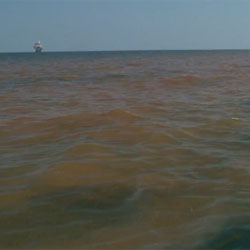 Our coalition held a press call today to announce a proposal and to help reporters make the connection between Corexit, the worrisome chemical dispersant being used to clean up the Gulf oil spill, and our nation’s failing system for regulating such chemicals, the Toxic Substances Control act of 1976 (TSCA). What’s going on in the Gulf is not an isolated incident — it’s a very dramatic, very public example of our nation’s broken system for managing chemicals.
Our coalition held a press call today to announce a proposal and to help reporters make the connection between Corexit, the worrisome chemical dispersant being used to clean up the Gulf oil spill, and our nation’s failing system for regulating such chemicals, the Toxic Substances Control act of 1976 (TSCA). What’s going on in the Gulf is not an isolated incident — it’s a very dramatic, very public example of our nation’s broken system for managing chemicals.
Details on specific provisions being called for by the Safer Chemicals, Healthy Families coalition ![]()
In their attempt to reassure Americans that Corexit was no more dangerous than common household products, chemical manufacturer Nalco unwittingly highlighted the fact that, because our laws are so weak, it’s entirely possible that our household products are quite dangerous! The reality is, our laws don’t require companies to show household products are safe before they arrive under our kitchen sinks, any more than they have to prove chemical dispersants are safe before they get dumped into our oceans. Hardly reassuring.
Listen to the press teleconference
The basic problem facing BP, Obama, pelicans, sea sponges, and the fisherman helping to clean up the oil is this: BP has dumped more than a million gallons of a chemical into the ocean for which there is scarce relevant safety data. This is the same dilemma facing Americans every day as they try to assess which crib mattress, which water bottle, which frying pan is least likely to cause harm to their families.
Gina Solomon, MD, MPH, Senior Scientist with the Natural Resources Defense Council, has been down to the Gulf coast, talking to people who are experiencing troubling health symptoms since the spill. She told reporters:
“People are worried, smelling things, feeling sick. It’s déjà vu for me – I’ve been through this drill before with patients who arrive in my office worried about feeling sick after being exposed to a chemical. When I try to get the scientific information I need to advise them, I hit a wall. That’s the situation in the Gulf – it’s been a month now, with no information, just layers of secrecy.”
Wilma Subra, a chemist and community activist from Louisiana who has been working closely with Gulf coast communities added:
“Fishermen helping with the cleanup were getting sprayed, exposed directly. They were scared when they started developing problems. They didn’t want to speak out, because they thought they were going to get fired by BP. Finally, when the symptoms got severe, they went to the hospital. But the medical staff couldn’t do much because they didn’t know what the fishers had been exposed to. Most of the chemicals were proprietary. These guys are already stressed—their fishing grounds just closed. And now they are getting sick.”
Richard Murphy, Ph.D., of Jean-Michel Cousteau’s Ocean Futures Society, is part of a team diving in the Gulf waters, documenting the effects on marine life. He pointed out:
“… the ocean is the womb of the planet. All the organisms that are spawning and reproducing right now in the Gulf are being exposed to an incredible array of chemicals. We don’t know what effect that will have. What’s more, we are at the top of the food chain—what’s in the ocean will end up in our bodies.”
Safer Chemicals, Healthy Families coalition director Andy Igrejas emphasized the need for Congress to pass new laws:
“We are rolling the dice with the health of workers and marine life in the Gulf by using dispersants that we know very little about. We need a stronger law to ensure that chemical dispersants, and the wide variety of products that we bring into our homes and offices every day, are safe.”
The press call ended with a remark from Richard Denison, Ph.D., of the Environmental Defense Fund. Richard summed up the problem nicely:
“We should have had answers going into this, instead of having to speculate after the fact.”
Two of the experts quoted above are blogging extensively on the Gulf oil crisis:
Richard Denison
Here are some media stories written after the press conference:
Fast Company reports: Secret Ingredients in Corexit Oil Dispersant Are Carcinogenic and Absorbed Through Skin
CQ Politics reports: Congress Urged To Tighten Toxic Chemical Rules in Wake of Oil Spill



